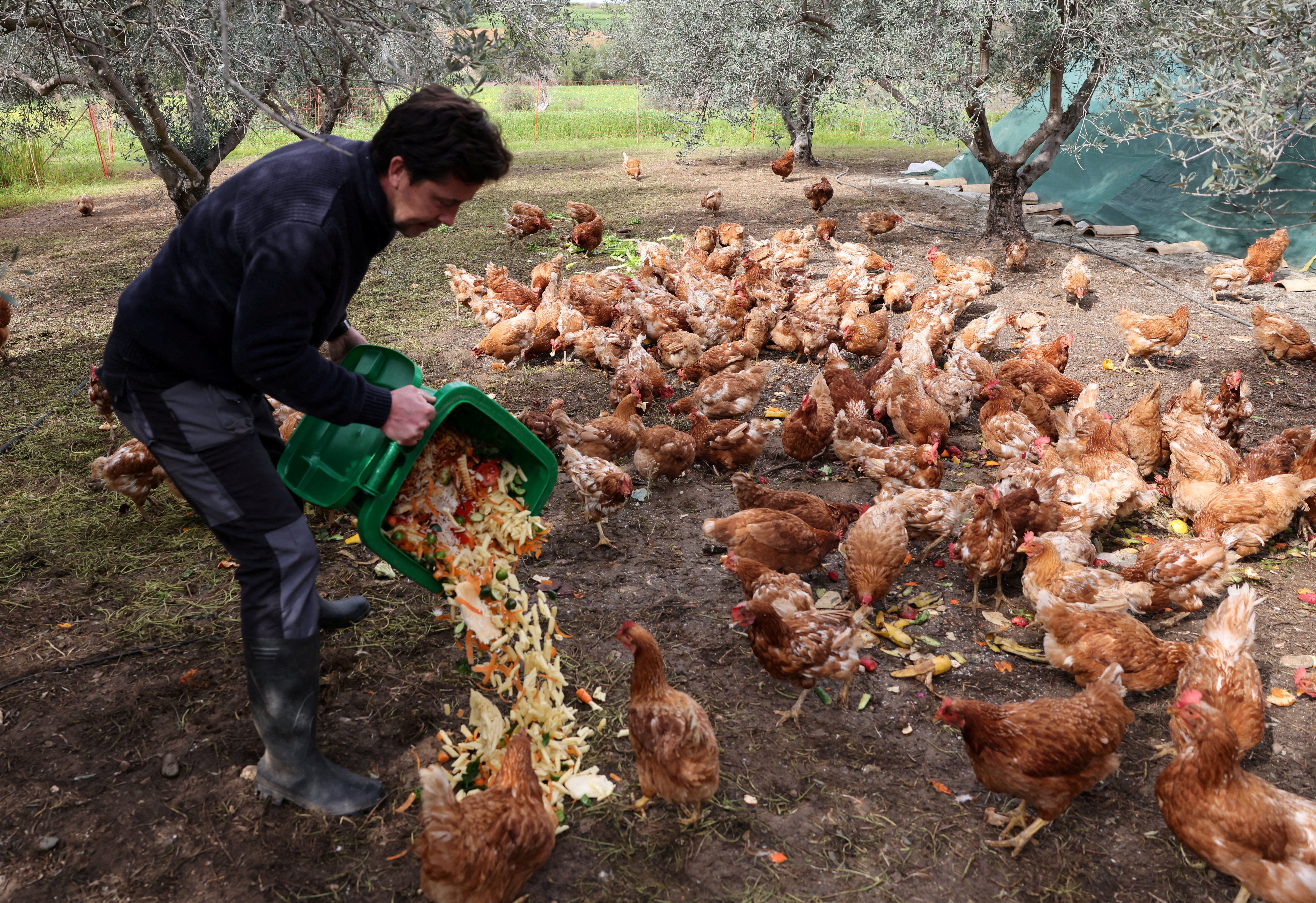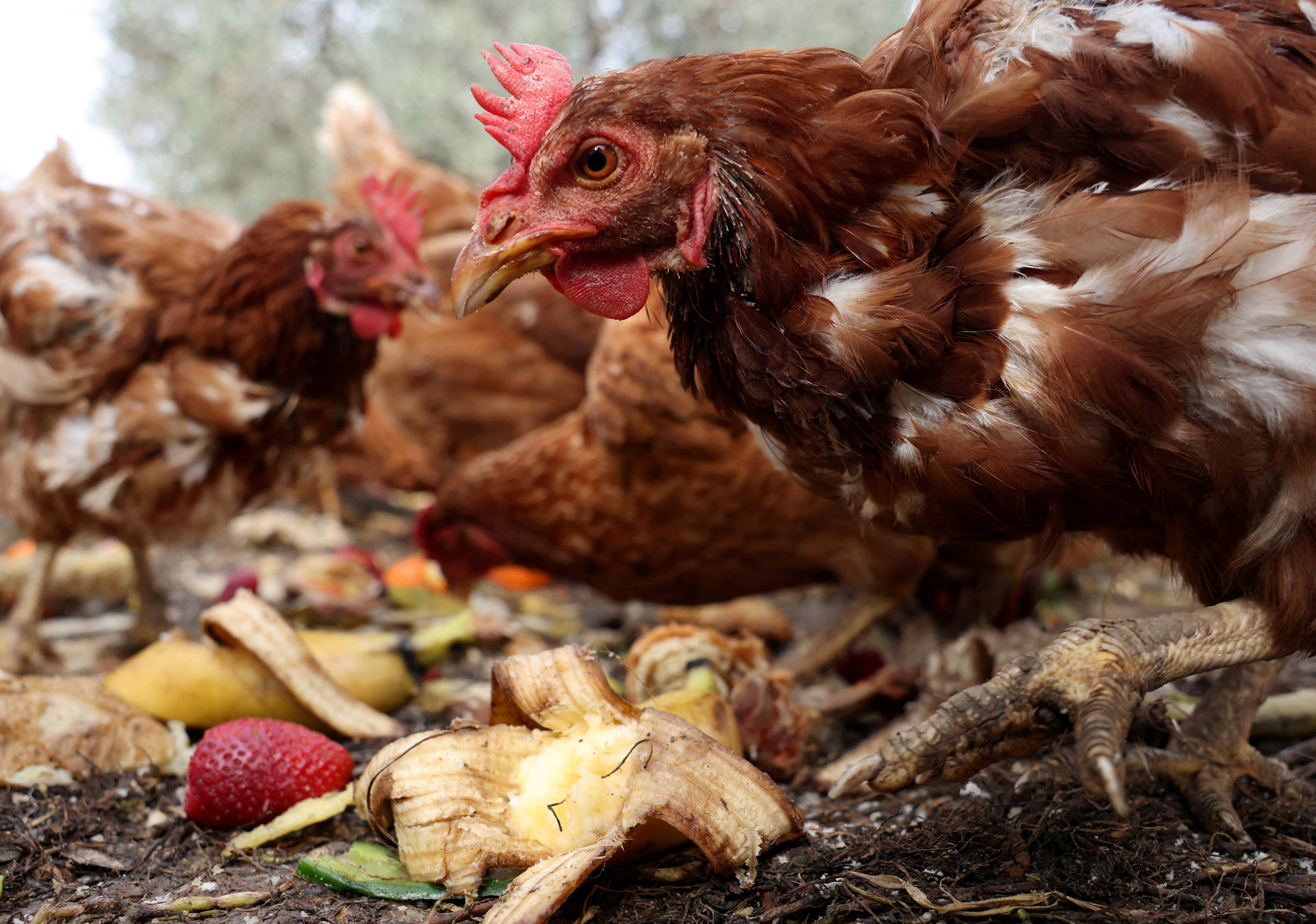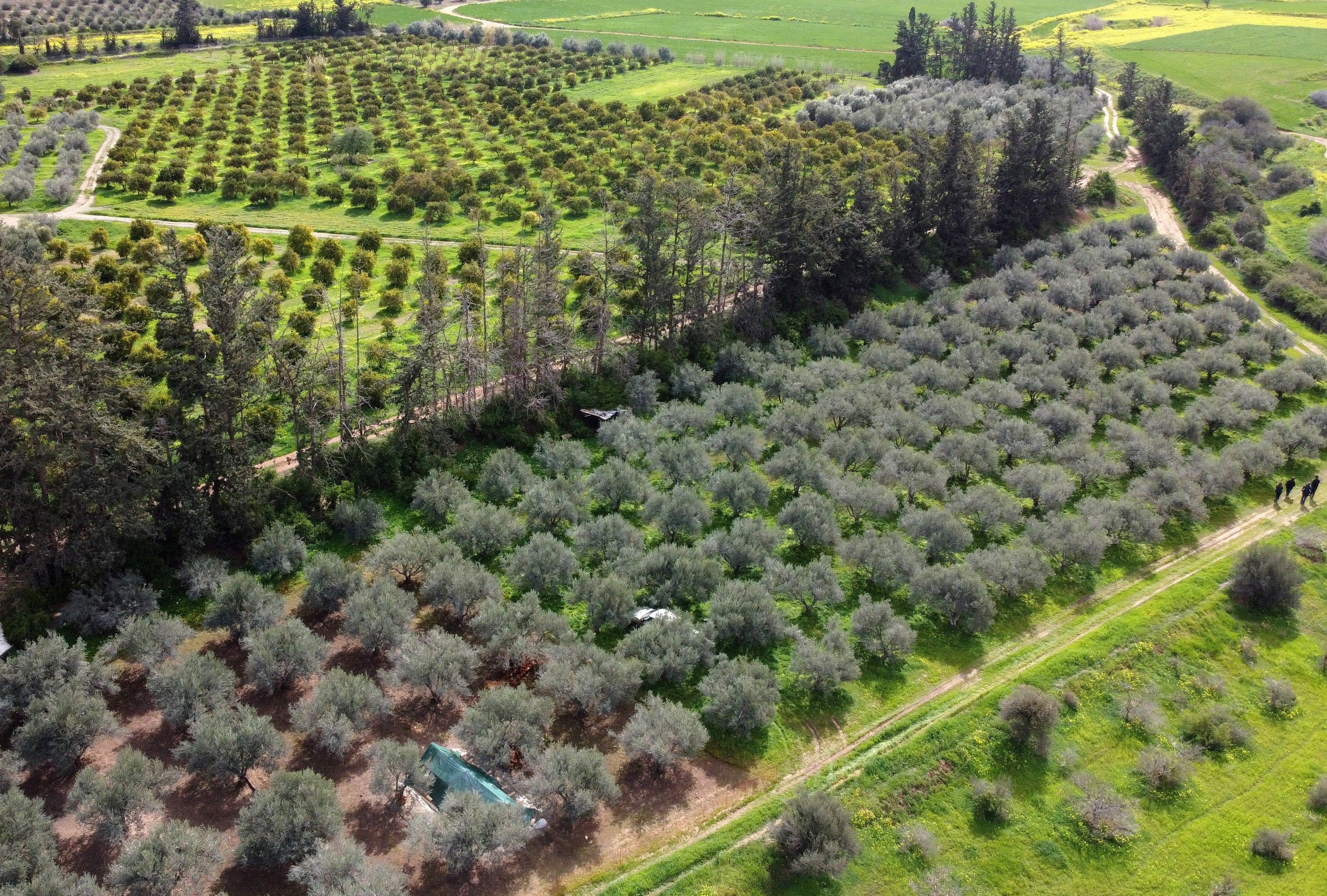Why hens have become an unlikely ally in restoring olive groves

Retired hens have found a new calling: fertilising olive groves in Cyprus.
The pilot project, dubbed "Kot-Kot," aims to boost olive yields, combat disease, and tackle food waste simultaneously.
Hundreds of hens, rescued from slaughter after their egg-laying prime, now roam freely among the olive trees at the Akaki Grove, nestled in the Troodos mountains west of Nicosia.
The project, spearheaded by farmer Elena Christoforos and soil engineer Nicolas Netien, utilises a back-to-basics approach. Donated food waste, often collected from local schoolchildren, feeds the hens. In turn, the hens provide natural fertiliser for the olive trees, contributing to the production of olive oil rich in polyphenols, known for their anti-inflammatory properties.
"We provide them with an old hens' home, they come here and retire," explains Christoforos, amidst the sounds of clucking chickens. The hens' presence offers multiple benefits to the olive grove. By pecking at larvae, they help control the olive fly population, a common pest for Mediterranean olive farmers. Their foraging habits also naturally manage surface weeds.

Their droppings enrich the soil, and feeding them with food waste reduces the amount of methane-producing organic matter going into landfill.
The hens can enjoy a long retirement among the olive trees, living for eight to 10 years despite only laying eggs until the age of 2.

"The goal here is to create a biodiverse, self-sustained ecosystem that can sustain really high temperatures and long droughts. So when I bring animals into the system by eating ground cover and pooping, it speeds up the cycle," Netien said.
Netien, who holds the world record for producing olive oil with the highest polyphenol content, said olive tree growth and yields had improved markedly since the hens arrived.
Olive oil, a daily staple of Mediterranean cuisine and the life of many a salad throughout Europe, has experienced a staggering rise in price in the past few years. It's a prime example of how food still outruns overall inflation in the European Union.
A 2024 survey showed that a third of Italians had cut back on their use of olive oil because of price rises.
At that time, in March last year, Italian producers pushed back against the claim, saying the snapshot of consumer sentiment does not give a full picture - and that sales of higher-quality, Italian, extra virgin olive oil were actually on the up.
Join our commenting forum
Join thought-provoking conversations, follow other Independent readers and see their replies
Comments
Bookmark popover
Removed from bookmarks